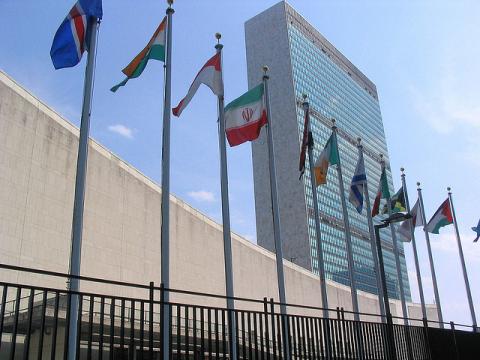
The following alert is circulated by the human rights, anti-trafficking group Equality Now:
Combating sex trafficking and commercial sexual exploitation around the world requires the insight and leadership of survivors who have experienced these human rights abuses. Survivors know first-hand the human rights violations inherent in sex trafficking and commercial sexual exploitation, and are of vital importance in informing effective anti-trafficking efforts. ...
[A]nti-trafficking organizations worldwide, many of which are survivor-led, are gravely concerned about two reports released last year with the backing of the United Nations (UN) and which are being seen as official UN policy. These reports not only make recommendations in direct opposition to international human rights standards, but also largely ignore the experiences and views of survivors of prostitution and sex trafficking.
These two reports, the Global Commission on HIV and the Law’s report HIV and the Law: Risks, Rights and Health (2012), published by the UN Development Program (UNDP), and the UNDP, UN Population Fund (UNFPA) and UNAIDS-backed report, Sex Work and the Law in Asia and the Pacific (2012), tell countries that in order to support efforts to reduce HIV/AIDS and to promote the human rights of people in prostitution, all aspects of the commercial sex industry should be decriminalized. While the UN Convention on the Elimination of all Forms of Discrimination against Women (the International Bill of Women’s Rights) calls for countries to “suppress all forms of traffic in women and exploitation of prostitution of women,” the UN reports at issue call for the opposite: the decriminalization of pimping, brothel-keeping and the purchase of sex. In addition, the recommendations of the reports go against mounting evidence that decriminalization and legalization – including of brothels – does not protect people in prostitution or improve their situation.
Please urge UNAIDS, UNFPA and UNDP to:
- Clarify their position on the decriminalization of pimps, brothel owners and buyers;
- In all future development of policies and programs on issues that affect people in the commercial sex industry, consult, involve and reflect the views of survivors of commercial sexual exploitation as well as a diverse range of groups working on the issue of prostitution and sex trafficking.
Take action using this alert from Equality Now. (Feel free to add language supporting the criminalization of pimps, brothel owners, and buyers, with strong sanctions whenever possible.)
